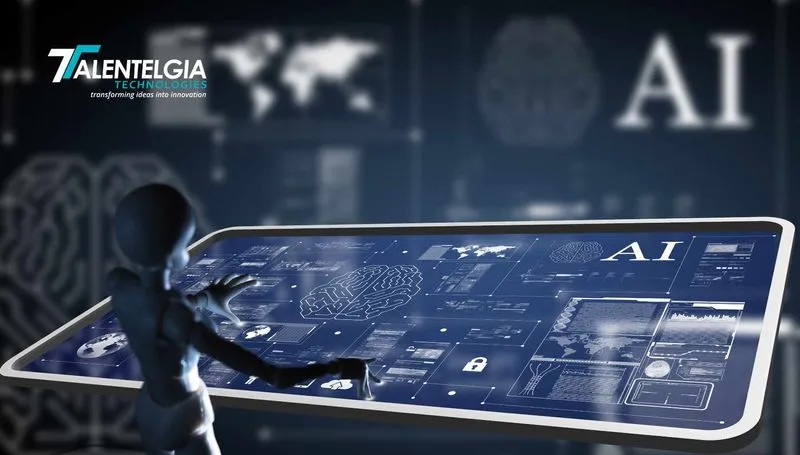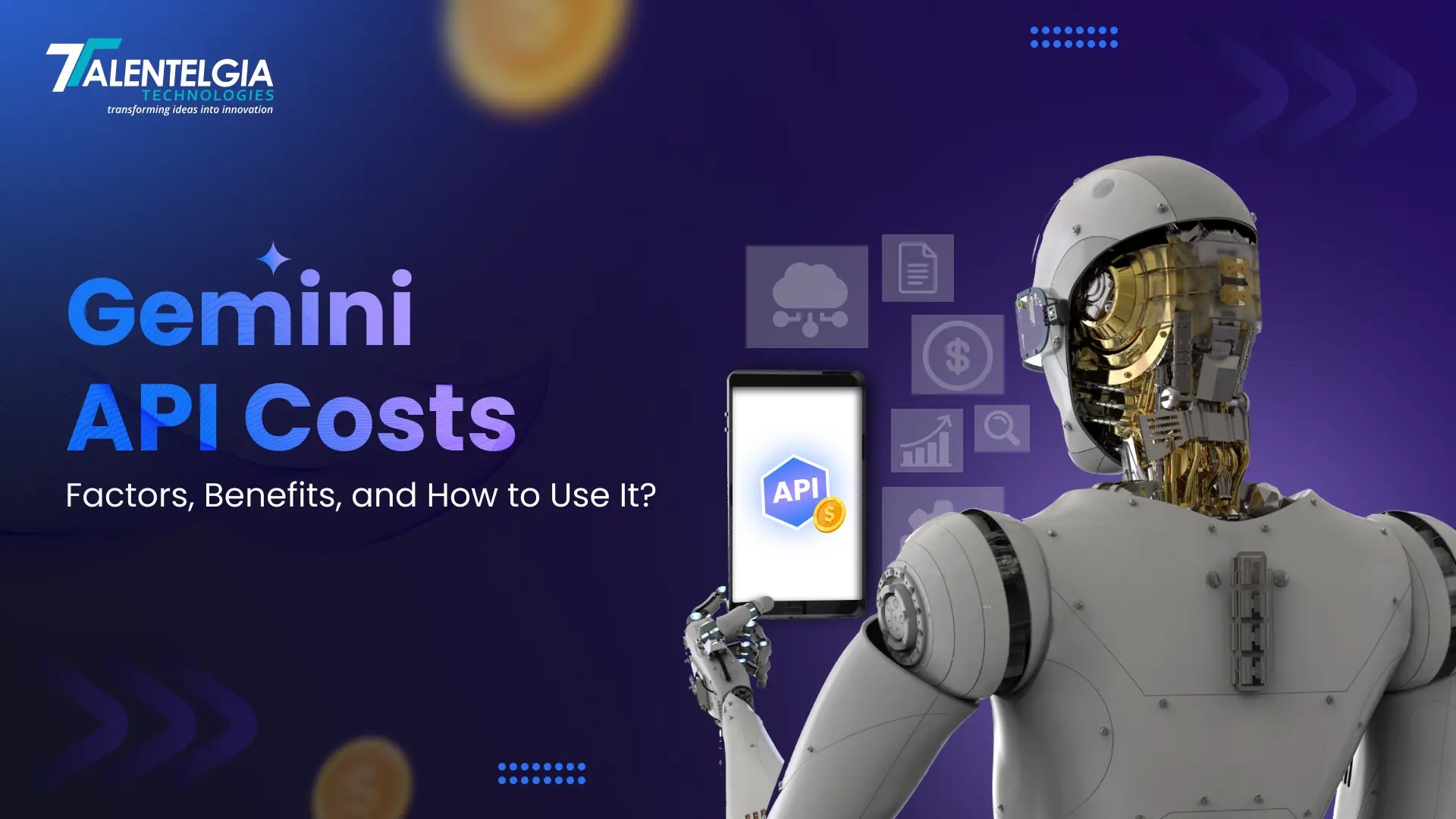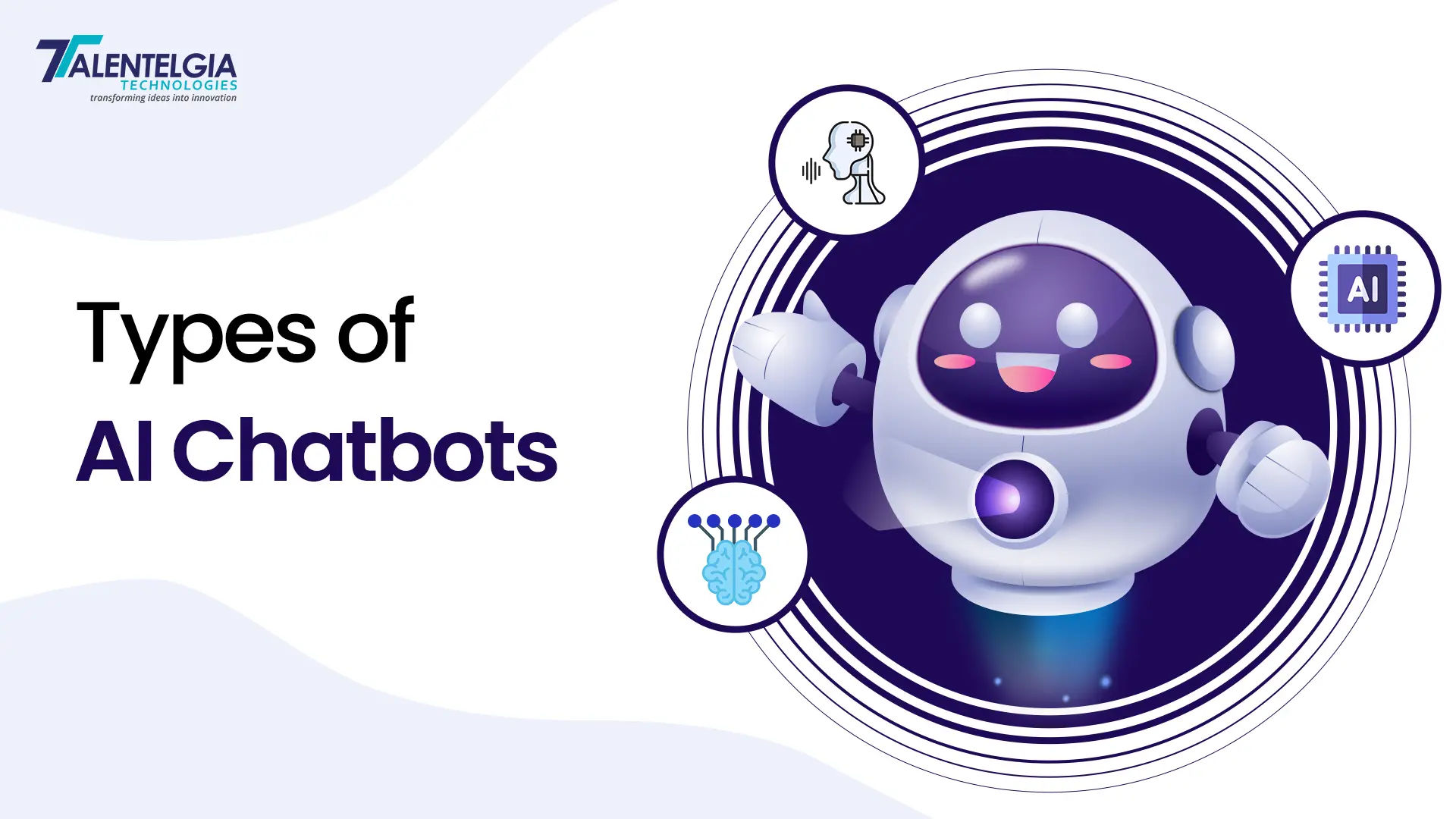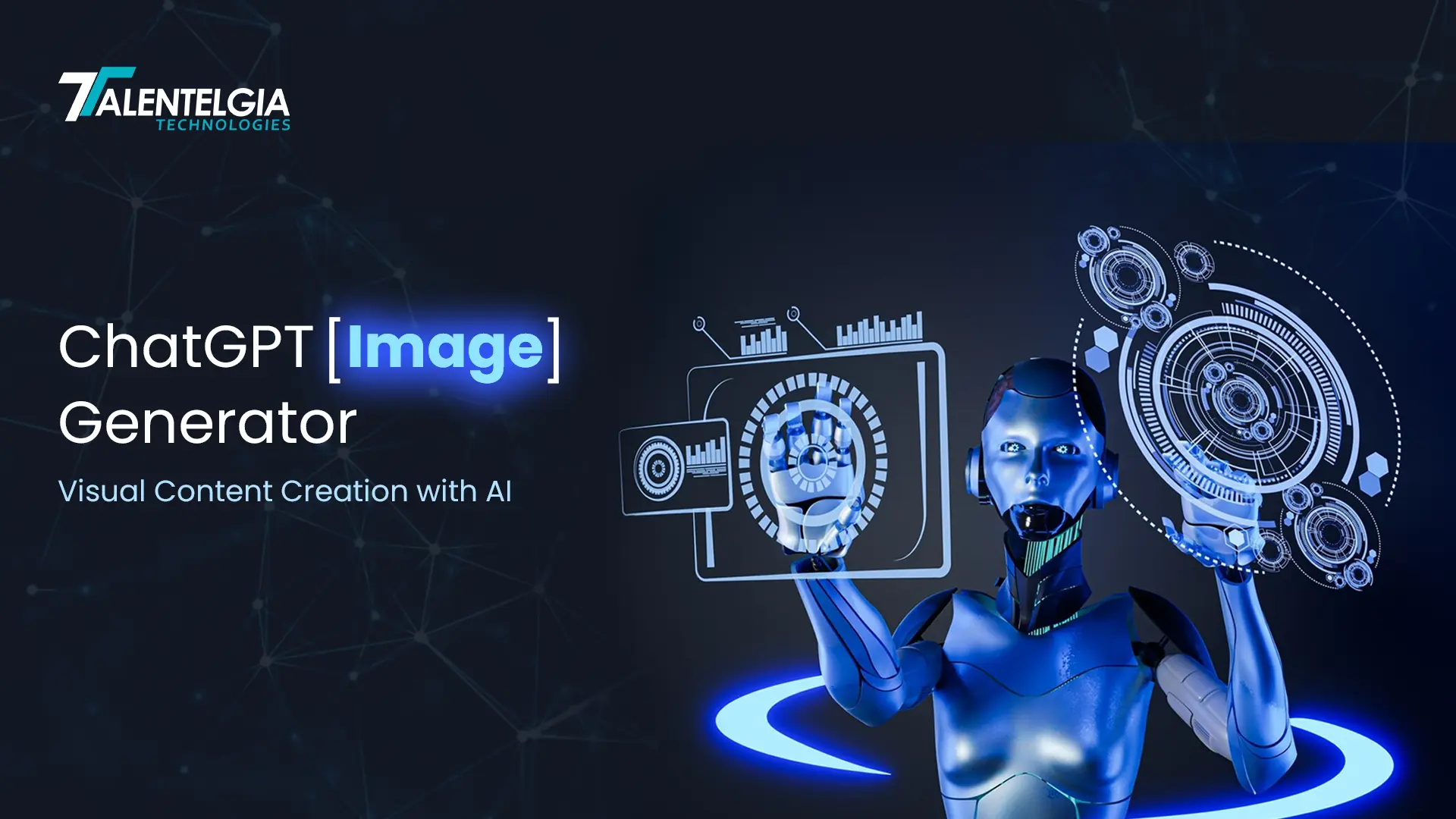Artificial Intelligence (AI) is now transforming the business world, software development is no exception. It is now revolutionizing how software is developed, tested, and maintained.
It has become an integral part of our daily lives, powering applications, services, and systems that impact numerous industries. That is why understanding the relationship between AI development and software development is essential to know the opportunities it brings for businesses keen to grow.
Understanding AI and Software Development
AI refers to the technology that empowers businesses to perform tasks that require human intelligence. It also helps in the automation of various aspects of software development services, streamlining processes such as code generation, testing, and debugging. This automation reduces manual effort, enhances productivity, and helps developers focus on higher-level tasks. It is widely used in the market for:
Intelligent Assistants: AI-powered intelligent assistants, like code suggestion tools and automated documentation generators, assist developers in writing cleaner, more efficient code. These tools leverage machine learning algorithms to understand coding patterns, anticipate needs, and provide relevant suggestions.
Data-driven Insights: AI enables developers to leverage vast amounts of data to gain insights and make informed decisions. Data analysis techniques, such as predictive analytics and data mining, help developers identify patterns, optimize algorithms, and improve user experiences.
Challenges in AI and Software Development Process
Artificial Intelligence (AI) has made significant advancements in recent years, revolutionizing various industries. However, the journey toward achieving truly intelligent machines is not without its challenges and limitations.
While AI has made remarkable progress, challenges, and limitations persist on the path towards achieving human-level intelligence. By addressing data limitations, focusing on explainability and transparency, upholding ethical considerations, improving contextual understanding, interpreting human emotions, and optimizing computing power, we can overcome these obstacles. Collaboration between researchers, policymakers, and industry professionals is key to developing responsible and impactful AI solutions. By acknowledging these challenges and actively working towards solutions, we can harness the transformative potential of AI while ensuring its ethical and responsible use in benefiting humanity.
Ethical Considerations: AI introduces ethical concerns, such as bias in algorithms, privacy issues, and transparency in decision-making. Full-stack developers must navigate these challenges to ensure AI systems are fair, secure, and transparent.
Continuous Learning: AI technology is constantly evolving, and developers must stay updated with the latest advancements. Keeping up with emerging AI techniques and algorithms is vital to incorporate them effectively into software development processes.
Integration Complexity: Integrating AI components into existing software can be complex. Developers need to consider factors like scalability, performance, and compatibility with existing frameworks, ensuring a smooth integration of AI capabilities.
Complementary Roles: AI and humans have distinct strengths. While AI excels in repetitive tasks and data processing, human developers bring creativity, critical thinking, and domain expertise.
How can AI help? Benefits of AI in software development
AI has made the development process more efficient as the developers can work smarter, faster, and with greater precision. It helps organizations streamline development workflows, improve code quality, and enhance the complete software development lifecycle.
Embracing AI-driven tools and techniques is essential to stay ahead in a fast-paced and competitive industry.
Intelligent Code Generation
AI-powered code generation tools are revolutionizing the way developers write code. These tools leverage machine learning algorithms to analyze existing codebases, understand patterns, and generate code snippets or even complete functions. Intelligent code generation not only accelerates development cycles but also helps maintain code quality and consistency.
Bug Detection and Quality Assurance
AI algorithms can analyze large volumes of code and identify potential bugs, vulnerabilities, and performance issues. Machine learning models trained on historical data can predict code defects and suggest fixes. AI-powered code analyzers can automatically scan codebases, ensuring adherence to coding standards and best practices to improve code quality and reduce security risk.
Automated Testing and Test Optimization
AI algorithms can automatically generate test cases, prioritize test coverage, and identify areas that require additional testing. Machine learning techniques can also be applied to analyze test results and generate intelligent recommendations for optimizing test suites. AI-powered testing frameworks can perform automated testing, reducing the time and effort required for manual testing and enabling faster release cycles.
Predictive Development and Requirement Analysis
AI algorithms can analyze user feedback, historical data, and market trends to predict future requirements and user preferences. Natural language processing (NLP) and sentiment analysis techniques offer insights into user expectations and tailor features accordingly. AI can also assist in requirement analysis by extracting key information from user stories, documentation, and other sources, accelerating the initial stages of the development process.
Continuous Integration and Deployment
AI-based systems can streamline continuous integration and deployment (CI/CD) processes by automating tasks such as building, testing, and deployment AI algorithms can analyze historical data and system performance to predict potential issues during deployments, reducing downtime and increasing system reliability. Machine learning models can optimize release cycles by predicting the ideal timing for releases, minimizing risks associated with frequent updates.
Intelligent Project Management
AI-powered project management tools provide insights into resource allocation, task prioritization, and project timelines. Machine learning algorithms analyze historical project data to identify potential bottlenecks, estimate project completion times, and recommend adjustments to optimize productivity. Intelligent project management systems assist in resource planning, risk assessment, and decision-making, ultimately improving project outcomes.
AI Applications in the business world
By embracing automation, leveraging intelligent assistants, and harnessing data-driven insights, developers can enhance their productivity and create smarter systems. However, they must also address the ethical challenges, stay abreast of AI advancements, and foster collaborative environments to ensure a responsible and impactful integration of AI into software development services.
AI applications continue to advance rapidly, transforming various industries and aspects of our lives. Here are some of the latest AI applications:
Natural Language Processing (NLP)
NLP is impacting how we interact with computers and devices. AI-powered virtual assistants like Siri, Google Assistant, and Amazon Alexa utilize NLP to understand and respond to human voice commands. NLP also plays a crucial role in language translation, sentiment analysis, chatbots, and voice-enabled customer service.
Computer Vision
Computer vision, powered by AI, enables machines to analyze and understand visual data. It is used in numerous applications, such as facial recognition, object detection, autonomous vehicles, medical imaging, surveillance systems, and quality control in manufacturing. AI algorithms can identify and classify objects, interpret images and videos, and even enable visually impaired individuals to navigate their surroundings.
Recommendation Systems
Recommendation systems leverage AI algorithms to personalize and suggest products, services, or content based on user preferences and behavior. These are common in e-commerce platforms, streaming services, social media platforms, and news aggregators. By analyzing user data and patterns, recommendation systems provide tailored recommendations, enhancing user experiences and driving engagement.
Autonomous Systems
AI is also powering advancements in autonomous systems, including self-driving cars, drones, and robotics. These systems utilize AI algorithms to perceive and interpret their environment, make decisions, and perform tasks without human intervention.
Healthcare Diagnostics
AI is transforming the field of healthcare by assisting in medical diagnostics. Machine learning algorithms can analyze medical images, such as X-rays, MRIs, and CT scans, to detect abnormalities and assist in diagnosing diseases like cancer. AI applications in healthcare also include personalized medicine, drug discovery, virtual nursing assistants, and predictive analytics for patient outcomes
Fraud Detection and Cybersecurity
AI is helping organizations combat fraud and enhance cybersecurity. AI algorithms analyze vast amounts of data to detect patterns and anomalies, identifying potential fraudulent activities in real-time. AI-powered cybersecurity systems can easily monitor network traffic, identify threats, and proactively respond to cyber attacks, protecting sensitive data and infrastructure.
Financial Services
AI is being extensively utilized in the financial services sector for tasks such as fraud detection, credit scoring, algorithmic trading, and customer service chatbots. AI-powered chatbots assist customers in handling inquiries, transactions, and personalized financial advice. Machine learning models analyze financial data to provide predictive insights, enabling better investment strategies and risk assessment.
Virtual Reality (VR) and Augmented Reality (AR)
AI combined with VR and AR technologies is transforming immersive experiences. AI algorithms can enhance VR and AR environments by generating realistic graphics, simulating natural interactions, and adapting experiences based on user behavior. This combination is used in gaming, training simulations, virtual tours, and educational applications.
The Future of Coding with AI
The future of AI applications holds immense potential for transforming various industries and aspects of our lives. AI is also expected to make significant advancements in the coming years:
Smart Cities and Infrastructure
AI will be a driving force behind the development of smart cities. AI applications will optimize energy consumption, manage traffic flow, enhance public safety, and improve resource allocation. Machine learning algorithms will analyze data from various sources, including sensors, cameras, and citizen inputs, to make cities more livable, efficient, and sustainable.
Enhanced Customer Experience
AI-powered chatbots and virtual assistants will become even more sophisticated, providing personalized and seamless customer experiences across industries. Natural Language Processing (NLP) and sentiment analysis algorithms will enable chatbots to understand and respond to human emotions, leading to more empathetic interactions. AI will enable highly personalized recommendations, tailored marketing campaigns, and proactive customer service.
Environmental Sustainability
AI can play a significant role in addressing environmental challenges. Machine learning algorithms will analyze environmental data to model climate change, optimize energy usage, and develop strategies for sustainable resource management. AI applications will help in monitoring and protecting ecosystems, predicting natural disasters, and supporting efforts towards a more sustainable future.
Personalized Education
AI will transform the education sector by providing personalized and adaptive learning experiences. Intelligent tutoring systems will utilize AI algorithms to assess individual student strengths and weaknesses, tailor instructional content, and provide targeted feedback. Virtual reality and augmented reality will also enhance the learning experiences.
Conclusion
The future of AI applications is vast and promising. AI is reshaping industries, revolutionizing processes, and improving our overall quality of life. Therefore, it is essential to navigate the ethical and societal implications of AI to ensure that these advancements are used strategically for your business growth.


 Healthcare App Development Services
Healthcare App Development Services
 Real Estate Web Development Services
Real Estate Web Development Services
 E-Commerce App Development Services
E-Commerce App Development Services E-Commerce Web Development Services
E-Commerce Web Development Services Blockchain E-commerce Development Company
Blockchain E-commerce Development Company
 Fintech App Development Services
Fintech App Development Services Fintech Web Development
Fintech Web Development Blockchain Fintech Development Company
Blockchain Fintech Development Company
 E-Learning App Development Services
E-Learning App Development Services
 Restaurant App Development Company
Restaurant App Development Company
 Mobile Game Development Company
Mobile Game Development Company
 Travel App Development Company
Travel App Development Company
 Automotive Web Design
Automotive Web Design
 AI Traffic Management System
AI Traffic Management System
 AI Inventory Management Software
AI Inventory Management Software
 AI Software Development
AI Software Development  AI Development Company
AI Development Company  AI App Development Services
AI App Development Services  ChatGPT integration services
ChatGPT integration services  AI Integration Services
AI Integration Services  Generative AI Development Services
Generative AI Development Services  Natural Language Processing Company
Natural Language Processing Company Machine Learning Development
Machine Learning Development  Machine learning consulting services
Machine learning consulting services  Blockchain Development
Blockchain Development  Blockchain Software Development
Blockchain Software Development  Smart Contract Development Company
Smart Contract Development Company  NFT Marketplace Development Services
NFT Marketplace Development Services  Asset Tokenization Company
Asset Tokenization Company DeFi Wallet Development Company
DeFi Wallet Development Company Mobile App Development
Mobile App Development  IOS App Development
IOS App Development  Android App Development
Android App Development  Cross-Platform App Development
Cross-Platform App Development  Augmented Reality (AR) App Development
Augmented Reality (AR) App Development  Virtual Reality (VR) App Development
Virtual Reality (VR) App Development  Web App Development
Web App Development  SaaS App Development
SaaS App Development Flutter
Flutter  React Native
React Native  Swift (IOS)
Swift (IOS)  Kotlin (Android)
Kotlin (Android)  Mean Stack Development
Mean Stack Development  AngularJS Development
AngularJS Development  MongoDB Development
MongoDB Development  Nodejs Development
Nodejs Development  Database Development
Database Development Ruby on Rails Development
Ruby on Rails Development Expressjs Development
Expressjs Development  Full Stack Development
Full Stack Development  Web Development Services
Web Development Services  Laravel Development
Laravel Development  LAMP Development
LAMP Development  Custom PHP Development
Custom PHP Development  .Net Development
.Net Development  User Experience Design Services
User Experience Design Services  User Interface Design Services
User Interface Design Services  Automated Testing
Automated Testing  Manual Testing
Manual Testing  Digital Marketing Services
Digital Marketing Services 
 Ride-Sharing And Taxi Services
Ride-Sharing And Taxi Services Food Delivery Services
Food Delivery Services Grocery Delivery Services
Grocery Delivery Services Transportation And Logistics
Transportation And Logistics Car Wash App
Car Wash App Home Services App
Home Services App ERP Development Services
ERP Development Services CMS Development Services
CMS Development Services LMS Development
LMS Development CRM Development
CRM Development DevOps Development Services
DevOps Development Services AI Business Solutions
AI Business Solutions AI Cloud Solutions
AI Cloud Solutions AI Chatbot Development
AI Chatbot Development API Development
API Development Blockchain Product Development
Blockchain Product Development Cryptocurrency Wallet Development
Cryptocurrency Wallet Development About Talentelgia
About Talentelgia  Our Team
Our Team  Our Culture
Our Culture 
 Healthcare App Development Services
Healthcare App Development Services Real Estate Web Development Services
Real Estate Web Development Services E-Commerce App Development Services
E-Commerce App Development Services E-Commerce Web Development Services
E-Commerce Web Development Services Blockchain E-commerce
Development Company
Blockchain E-commerce
Development Company Fintech App Development Services
Fintech App Development Services Finance Web Development
Finance Web Development Blockchain Fintech
Development Company
Blockchain Fintech
Development Company E-Learning App Development Services
E-Learning App Development Services Restaurant App Development Company
Restaurant App Development Company Mobile Game Development Company
Mobile Game Development Company Travel App Development Company
Travel App Development Company Automotive Web Design
Automotive Web Design AI Traffic Management System
AI Traffic Management System AI Inventory Management Software
AI Inventory Management Software AI Software Development
AI Software Development AI Development Company
AI Development Company ChatGPT integration services
ChatGPT integration services AI Integration Services
AI Integration Services Machine Learning Development
Machine Learning Development Machine learning consulting services
Machine learning consulting services Blockchain Development
Blockchain Development Blockchain Software Development
Blockchain Software Development Smart contract development company
Smart contract development company NFT marketplace development services
NFT marketplace development services IOS App Development
IOS App Development Android App Development
Android App Development Cross-Platform App Development
Cross-Platform App Development Augmented Reality (AR) App
Development
Augmented Reality (AR) App
Development Virtual Reality (VR) App Development
Virtual Reality (VR) App Development Web App Development
Web App Development Flutter
Flutter React
Native
React
Native Swift
(IOS)
Swift
(IOS) Kotlin (Android)
Kotlin (Android) MEAN Stack Development
MEAN Stack Development AngularJS Development
AngularJS Development MongoDB Development
MongoDB Development Nodejs Development
Nodejs Development Database development services
Database development services Ruby on Rails Development services
Ruby on Rails Development services Expressjs Development
Expressjs Development Full Stack Development
Full Stack Development Web Development Services
Web Development Services Laravel Development
Laravel Development LAMP
Development
LAMP
Development Custom PHP Development
Custom PHP Development User Experience Design Services
User Experience Design Services User Interface Design Services
User Interface Design Services Automated Testing
Automated Testing Manual
Testing
Manual
Testing About Talentelgia
About Talentelgia Our Team
Our Team Our Culture
Our Culture


















 Write us on:
Write us on:  Business queries:
Business queries:  HR:
HR: 




